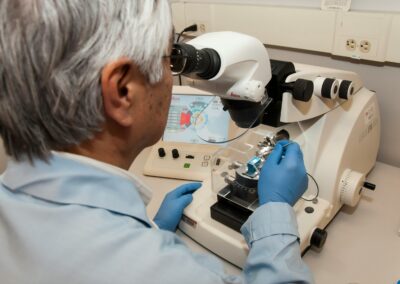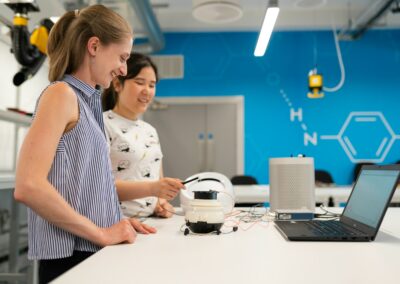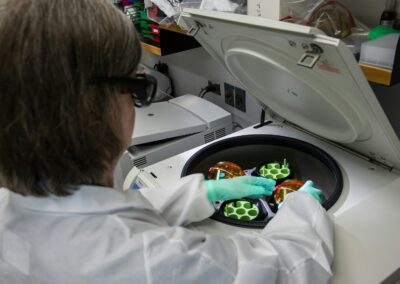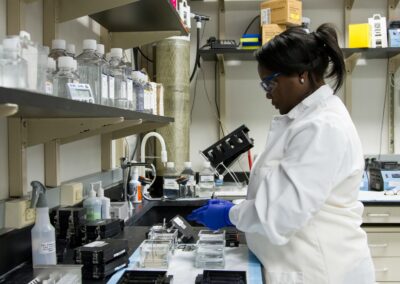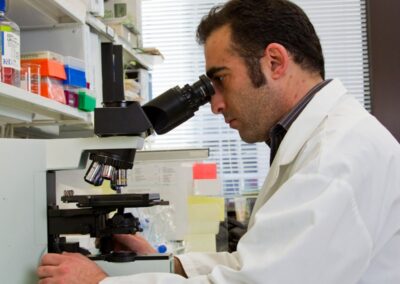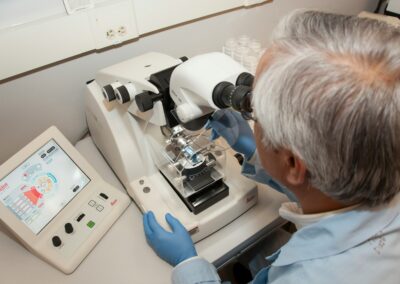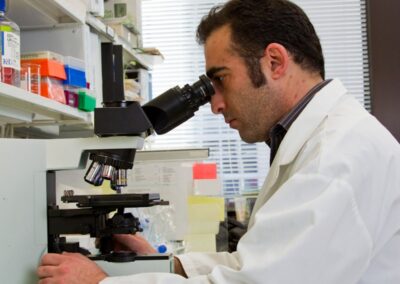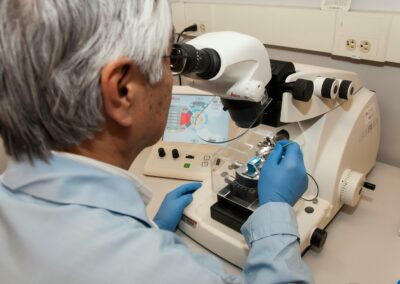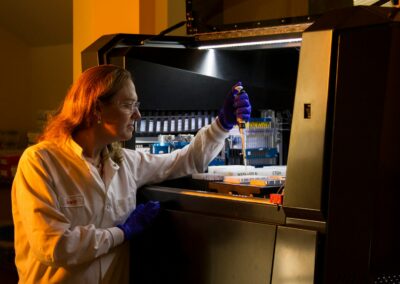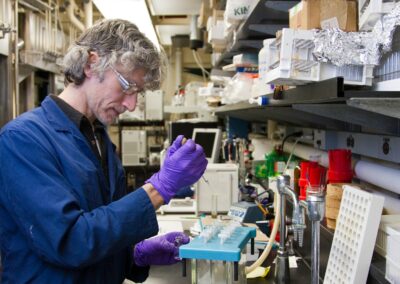Addressing Food Security Through Biotechnology
Revolutionizing Agricultural Practices
The potential of genetic engineering to address global challenges, such as food security and disease prevention, is immense. In the context of agricultural biotechnology, genetic engineering plays a pivotal role in enhancing crop resilience and productivity. By introducing specific genes into crops, scientists can develop varieties that are resistant to pests, diseases, and environmental stresses. This not only increases yield but also reduces the dependency on chemical pesticides and fertilizers, which are often harmful to the environment.
In countries like Saudi Arabia and the UAE, where arid climates and limited arable land pose significant challenges to traditional agriculture, genetic engineering offers transformative solutions. For instance, the development of drought-resistant crops can help maintain food production levels despite harsh environmental conditions. Additionally, genetic modifications can enhance the nutritional quality of crops, providing more fortified food sources for growing populations. This approach aligns with the goals of food security initiatives and supports sustainable agricultural practices.
Furthermore, the integration of genetic engineering with modern technologies such as artificial intelligence and blockchain can enhance the efficiency of agricultural operations. AI can optimize crop management and resource allocation, while blockchain ensures transparency and traceability in the food supply chain. Together, these innovations contribute to more resilient and productive agricultural systems, addressing global food security challenges effectively.
Innovative Solutions for Disease Prevention
In the realm of healthcare, genetic engineering is proving to be a powerful tool for disease prevention and treatment. By manipulating genes, scientists can develop targeted therapies and vaccines that address specific genetic mutations and infectious agents. This personalized approach to medicine offers the potential to significantly improve patient outcomes and reduce the prevalence of diseases.
For example, genetic engineering has led to the development of gene-editing technologies such as CRISPR-Cas9, which allows for precise modifications of the genome. These advancements have opened new avenues for treating genetic disorders and developing vaccines for emerging infectious diseases. The potential to create genetically modified organisms that produce therapeutic proteins also holds promise for addressing global health issues more efficiently.
In the context of Saudi Arabia and the UAE, where there is a focus on advancing healthcare and biotechnology, genetic engineering offers innovative solutions to combat prevalent diseases and improve public health. By investing in research and development, these countries can leverage genetic engineering to address health challenges unique to their regions, such as genetic disorders prevalent in local populations or diseases that may arise from climate change.
Enhancing Environmental Sustainability
Genetic engineering is also instrumental in promoting environmental sustainability. Through biotechnological innovations, it is possible to develop solutions that reduce environmental impact and contribute to conservation efforts. For instance, genetically engineered microorganisms can be used for bioremediation, which involves the cleanup of pollutants and waste from contaminated environments.
In Saudi Arabia and the UAE, where environmental sustainability is a key focus due to rapid industrialization and urban development, genetic engineering can offer effective solutions for managing waste and reducing pollution. Technologies that enhance the breakdown of hazardous substances or promote the growth of plants in polluted soils can contribute to more sustainable environmental practices and improve the quality of natural resources.
Moreover, genetic engineering can support efforts to combat climate change by developing crops and organisms that are more efficient in utilizing resources such as water and nutrients. These innovations not only support agricultural productivity but also help in conserving critical environmental resources. By integrating genetic engineering with broader sustainability initiatives, these countries can advance their goals of environmental stewardship and resilience.
Driving Innovation Through Cross-Disciplinary Collaboration
To fully harness the potential of genetic engineering in addressing global challenges, cross-disciplinary collaboration is essential. The integration of genetic engineering with fields such as artificial intelligence, blockchain, and advanced data analytics can drive innovative solutions and improve outcomes in areas such as food security and disease prevention.
In Saudi Arabia and the UAE, fostering collaborations between biotechnology experts, technology developers, and policy makers can accelerate the development and implementation of genetic engineering solutions. By leveraging the expertise of various stakeholders, these countries can create a more robust and integrated approach to addressing global challenges.
Furthermore, investing in education and training programs to build expertise in genetic engineering and related technologies will support the growth of a skilled workforce capable of driving innovation. As these countries continue to invest in biotechnology, the collaboration between different sectors will be crucial in achieving sustainable and impactful solutions to global challenges.
#GeneticEngineering, #GlobalChallenges, #FoodSecurity, #DiseasePrevention, #Biotechnology, #SustainableSolutions, #HealthInnovation, #AgriculturalBiotechnology











